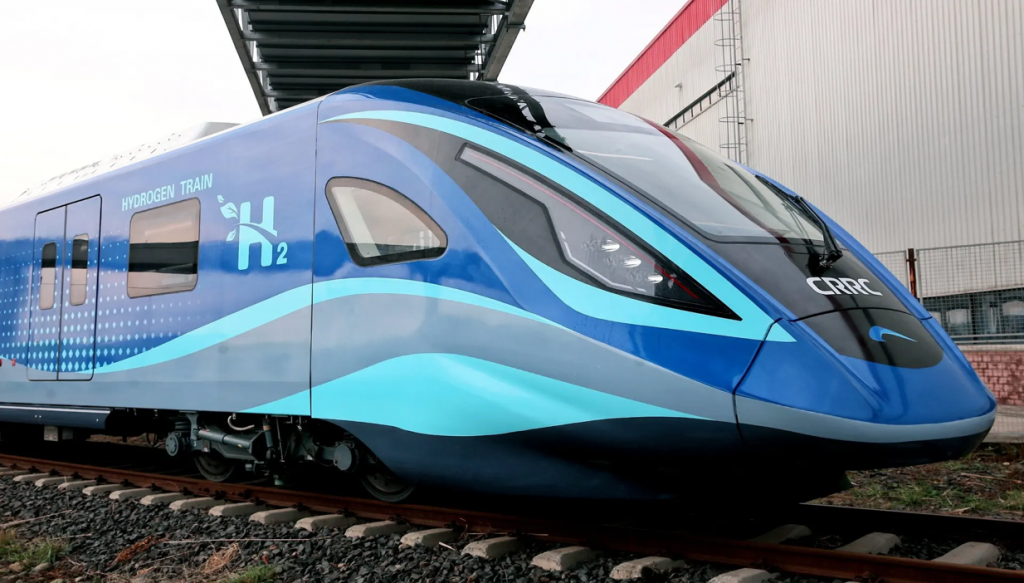On Wednesday, the world’s first hydrogen-energy urban train with independent IP rights, developed jointly by CRRC Changchun Railway Co and Chengdu Rail Transit, rolled off the assembly line in Chengdu, Southwest China’s Sichuan Province.
With a top speed of 160 kilometers per hour, the train used the key core technology of the Fuxing bullet train.
According to Chengdu Daily, the train has an integrated “hydrogen power” system that provides a strong and durable power source with a battery life of 600 kilometers.
On Wednesday, the world’s first hydrogen-energy urban train with independent IP rights, developed jointly by CRRC Changchun Railway Co and Chengdu Rail Transit, rolled off the assembly line in Chengdu, Southwest China’s Sichuan Province.
With a top speed of 160 kilometers per hour, the train used the key core technology of the Fuxing bullet train.
According to Chengdu Daily, the train has an integrated “hydrogen power” system that provides a strong and durable power source with a battery life of 600 kilometers.
According to the report, which cites experts, a train of hydrogen-energy cars traveling at 160 kilometers per hour can travel 500 kilometers back and forth in a day, reducing carbon dioxide emissions by more than 10,000 kilos per year.
Furthermore, because the train is no longer constrained by catenary operating conditions, it can be widely used in existing non-electrified line sections, greatly expanding the application scope of urban vehicles while avoiding the massive infrastructure investment and maintenance costs associated with electrification transformation efforts.
China has a bold plan to promote the growth of the hydrogen-energy industry. According to a plan released in March this year by the National Development and Reform Commission and the National Energy Administration (NEA), the country will have approximately 50,000 hydrogen fuel-cell vehicles by 2025, and annual hydrogen production from renewable energy will range from 100,000 to 200,000 tonnes.
According to NEA data, China had over 270 hydrogen refueling stations by the end of June, a relatively small network compared to the country’s extensive presence of charging stations for electric vehicles.
FAW Jiefang, a Chinese truck manufacturer, shipped 300 hydrogen fuel-cell vehicles from Northeast China’s Jilin Province to customers in Beijing, Shanghai, Shanxi, and other cities in June. According to the company’s official website, these vehicles have covered application scenarios such as logistics and city construction.
Source: Global Times

